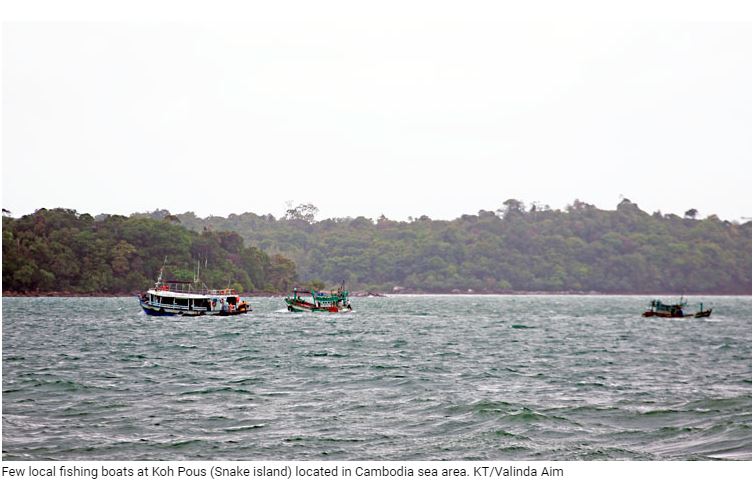World Oceans Day prompts re-think a push towards a ‘Blue Economy’
The Asian Development Bank has renewed the push for Cambodia and the Asian region to refocus its efforts away from the current “Ocean Economy” and towards a new, more sustainable “Blue Economy”, as yesterday marked World Oceans Day.
The “Blue Economy” is defined as the sustainable use of ocean resources for economic growth, improved livelihoods and jobs and ocean ecosystem health. The concept attempts to find a balance between the exploitation and preservation of the marine environment.
According to the “State of the Oceans” report released in collaboration with the United Nations Development Programme (UNDP), Cambodia’s “Ocean Economy” was valued at $2.4 billion (representing around 10 percent of gross domestic product) and directly and indirectly employs approximately 3.2 million workers.
However, the Asian Development Bank (ABD) has said unless immediate action is taken against current destructive fishing and pollution practices by 2050, there may be a 90 percent reduction in coral reefs and no commercially exploitable fish stocks in the world’s oceans.
In response to the dire warnings, the ADB has outlined four key financial initiatives to assist with the transition towards the new sustainable economy:
1. Blue bonds. These are proceeds from a fixed-income debt instrument that are invested in projects that meet the bond criteria. In turn, the bonds can generate jobs, economic growth and healthy oceans by investing in fisheries, marine and coastal tourism, coastal pollution and circular economy, marine renewable energy, and green ports and shipping.

2. Results-based lending. Also known as sustainability-linked loans or impact loans that provide finance tied to the delivery of specific environmental, social, and governance targets.
3. Ocean Risk Insurance. Parametric insurance products, such as coral reef insurance, can address ocean risks, including loss of income in fisheries or performance shortcomings of new technologies.
4. Payments for Ecosystem Services (PES). By capturing and monetising the benefits from marine ecosystem services, PES schemes help to pay the protection and management costs of marine resources.
To fund these and similar economic transitions the ADB has already committed $5 billion to expand its investments and technical assistance in ocean health and the blue economy over a five year period.
Implementing their signature “Action Plan for Healthy Oceans and Sustainable Blue Economies” last year, along with a new ADB Oceans Financing initiative, that will support the protection and restoration of marine ecosystems and promote inclusive livelihood opportunities.
“The action plan is also to ensure that the United Nations Sustainable Development Goal 14: Ensuring the livelihoods, health, resiliency, and food security of billions of people in the region, are met,” the bank said.
The theme for this years, World Oceans Day 2020 was “Innovation for a Sustainable Ocean”.
“The oceans are facing unprecedented pressures from factors ranging from pollution to climate change. And these pressures are projected to only rise in the future,” the organisation said.
The need to balance the preservation of a healthy ocean and ever-increasing economic activities requires a fresh approach and rethinking in many areas,” they added.”
Source: https://www.khmertimeskh.com/50731634/world-oceans-day-prompts-re-think-a-push-towards-a-blue-economy/


 Thailand
Thailand




